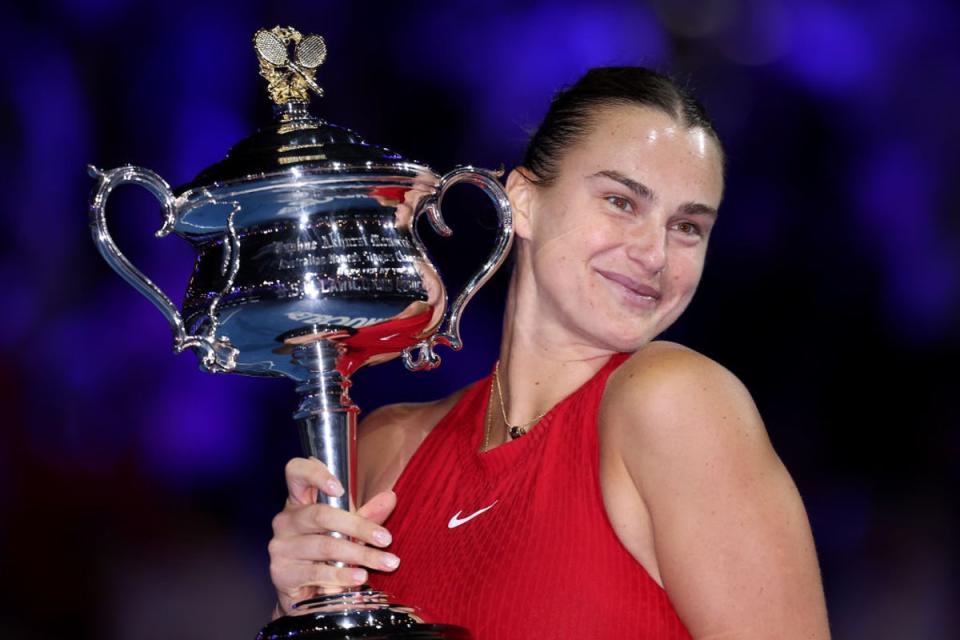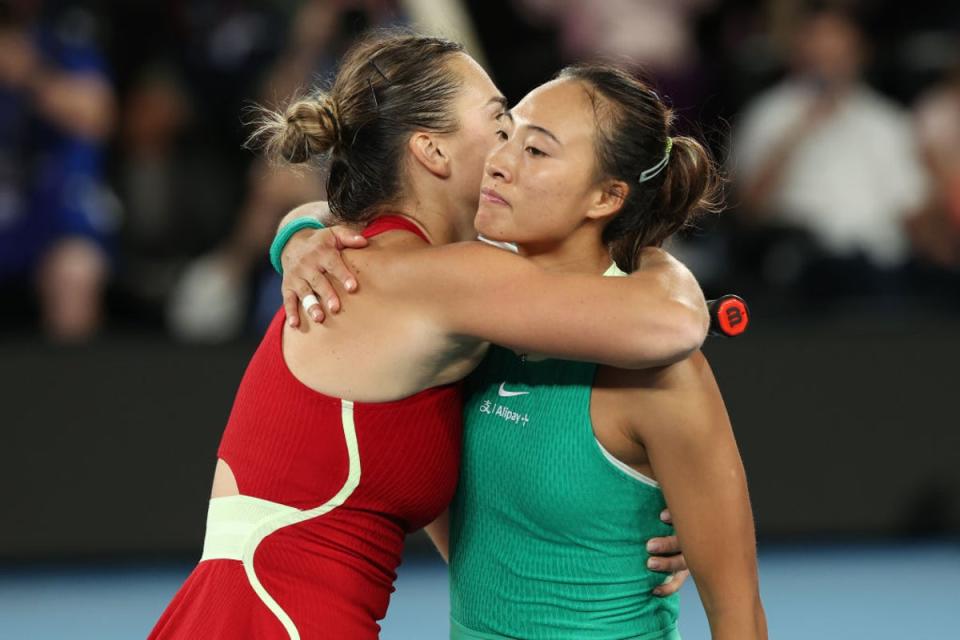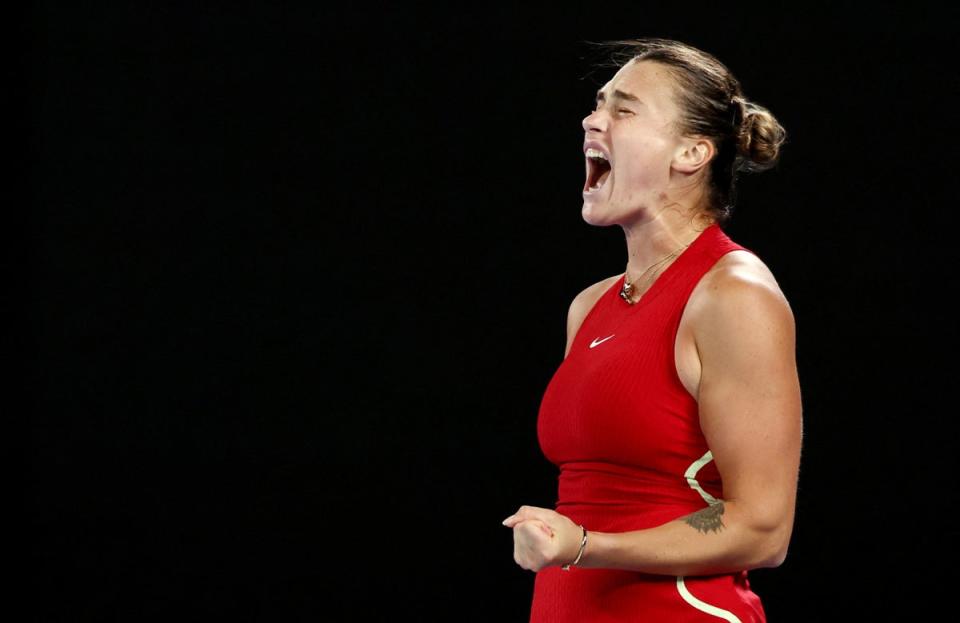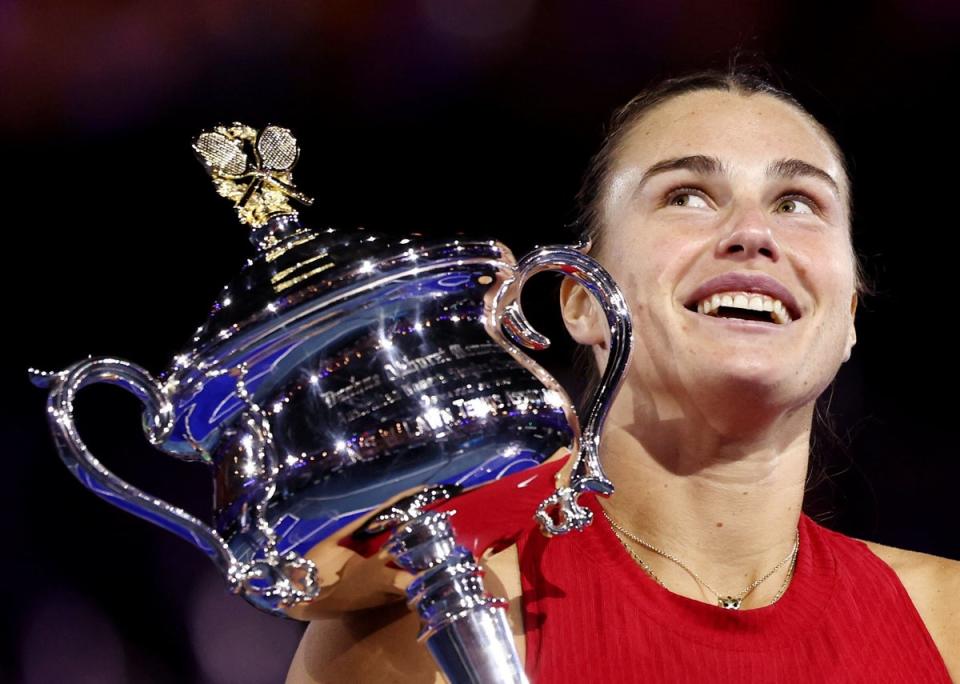Aryna Sabalenka’s dominant Australian Open defence completes a stunning transformation

Aryna Sabalenka claimed back-to-back Australian Open titles with a straight-sets victory over Qinwen Zheng in Melbourne. The world No 2 sealed a dominant tournament defence with a 6-3, 6-2 victory against the 12th seed Zheng, who was playing in a grand slam final for the first time.
The 25-year-old Belarusian was outstanding as she swept her way through the draw without dropping a single set as she became the first woman since compatriot Victoria Azarenka in 2013 to defend her title. It was Sabalenka’s second grand slam title overall as she bounced back from losing the US Open final to Coco Gauff in September.
Her victory over Zheng was just as comprehensive as her progress through the tournament, building on an opening break in the first behind her powerful first serve and forehand while allowing Zheng no time to settle into the match.
Sabalenka broke again at the start of the second set and passed a series of potentially tricky service games on her way to claiming the double break. A crushing victory firmly establishes Sabalenka as the most powerful force in the women’s game after a second grand slam title in 12 months.
Throughout the 76-minute final, Sabalanka demonstrated the immense improvements to her game since winning her first Australian Open title 12 months ago, in what was a far more stressful, nervy three-sets win over Elena Rybakina. A year later, Sabalenka’s old kryptonite of double faults had been banished: she did not make one in the final while the inexperienced Zheng committed six, and often at costly moments.

Sabalenka had not arrived in Melbourne as the favourite after being thrashed by Rybakina in a one-sided Brisbane final at the start of the season. But she swept her opponents aside, dropping just 21 games in a series of outstanding performances. After a difficult defeat to Gauff in the US Open final in September, where the Belarusian lost from a set up, Sabalanka returned to a grand slam final at the next opportunity.
She had taken revenge over Gauff in the semi-finals and once again led from the front against Zheng. With the 21-year-old Chinese playing in her first grand slam final, Sabalenka pounced in the early exchanges and secured an opening break as her forehand dominated the baseline rallies.
Sabalenka’s considerable development in the mental side of her game was apparent as she saved three break points in her next game, putting a couple of forehand errors behind her to hold from 0-40 down behind an aggressive, attacking approach on serve.
That was the difference in the opening set: from there, Sabalenka built on her lead and Zheng was unable to make any advances against the Belarusian’s serve, with the defending champion winning 15 of 16 first-serve points in the opening set.

Yet the match, in moments, felt closer: Zheng showed encouraging signs as her spinny serve began to find its mark but a costly opening game in the second set halted her growing momentum.
While Sabalenka produced a stunning forehand winner crosscourt on the return on 30-30, Zheng also coughed up the early break with her third double fault of the game. The threat of Sabalenaka’s thumping returns against the second serve has forced her opponents into double faults throughout the tournament.
Sabalenka faced pressure points on her next two service games but stayed calm and did not face a break point. Zheng committed more double faults to allow her opponent the chance for a double break. There, Sabalenka showcased her confidence with a stunning point of all-court attacking play, sealing the break with a deft drop shot.

Sabalenka only had the slightest of wobbles as she served it out, with Zheng saving her first four championship points as Sabalenka pushed too hard for a finishing winner. Dragged to deuce, Sabalenka had to save break point but she remained solid on her first serve and victory was never in doubt: a far cry from the unpredictable rollercoaster of 12 months ago.
Since winning her first Australian Open, Sabalenka has shown remarkable consistency at the grand slams, reaching six semi-finals in a row. Now she is able to continue her dominant form into the biggest matches at the latter stages of the most important tournaments, there can be no limit on what Sabalenka can achieve over the rest of the year.

